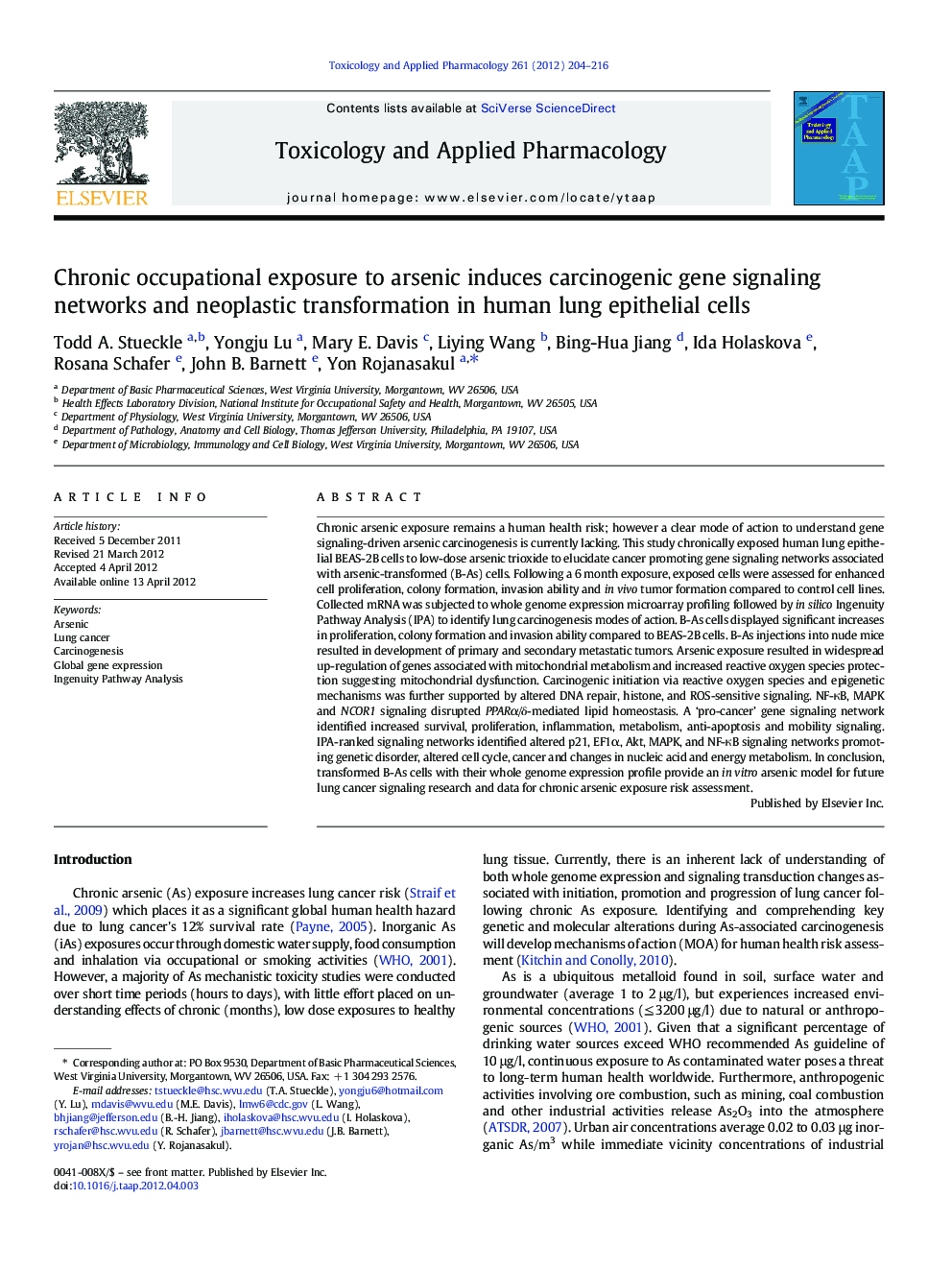| کد مقاله | کد نشریه | سال انتشار | مقاله انگلیسی | نسخه تمام متن |
|---|---|---|---|---|
| 2569024 | 1128504 | 2012 | 13 صفحه PDF | دانلود رایگان |

Chronic arsenic exposure remains a human health risk; however a clear mode of action to understand gene signaling-driven arsenic carcinogenesis is currently lacking. This study chronically exposed human lung epithelial BEAS-2B cells to low-dose arsenic trioxide to elucidate cancer promoting gene signaling networks associated with arsenic-transformed (B-As) cells. Following a 6 month exposure, exposed cells were assessed for enhanced cell proliferation, colony formation, invasion ability and in vivo tumor formation compared to control cell lines. Collected mRNA was subjected to whole genome expression microarray profiling followed by in silico Ingenuity Pathway Analysis (IPA) to identify lung carcinogenesis modes of action. B-As cells displayed significant increases in proliferation, colony formation and invasion ability compared to BEAS-2B cells. B-As injections into nude mice resulted in development of primary and secondary metastatic tumors. Arsenic exposure resulted in widespread up-regulation of genes associated with mitochondrial metabolism and increased reactive oxygen species protection suggesting mitochondrial dysfunction. Carcinogenic initiation via reactive oxygen species and epigenetic mechanisms was further supported by altered DNA repair, histone, and ROS-sensitive signaling. NF-κB, MAPK and NCOR1 signaling disrupted PPARα/δ-mediated lipid homeostasis. A ‘pro-cancer’ gene signaling network identified increased survival, proliferation, inflammation, metabolism, anti-apoptosis and mobility signaling. IPA-ranked signaling networks identified altered p21, EF1α, Akt, MAPK, and NF-κB signaling networks promoting genetic disorder, altered cell cycle, cancer and changes in nucleic acid and energy metabolism. In conclusion, transformed B-As cells with their whole genome expression profile provide an in vitro arsenic model for future lung cancer signaling research and data for chronic arsenic exposure risk assessment.
Figure optionsDownload high-quality image (140 K)Download as PowerPoint slideHighlights
► Chronic As2O3 exposure to lung epithelial cells resulted in a cancer-like phenotype.
► Mice injected with arsenic transformed (B-As) cells displayed metastatic tumors.
► Microarray profiling revealed changes in mitochondrial metabolism and ROS response.
► p21, EF1α, Akt, MAPK, PPARα and NF-κB networks promoted pro-cancer signaling.
► B-As cells represent a lung cancer model to explore As-associated carcinogenesis.
Journal: Toxicology and Applied Pharmacology - Volume 261, Issue 2, 1 June 2012, Pages 204–216